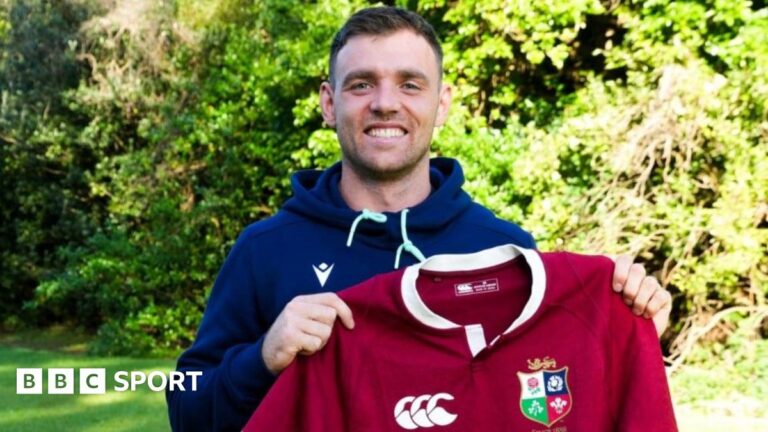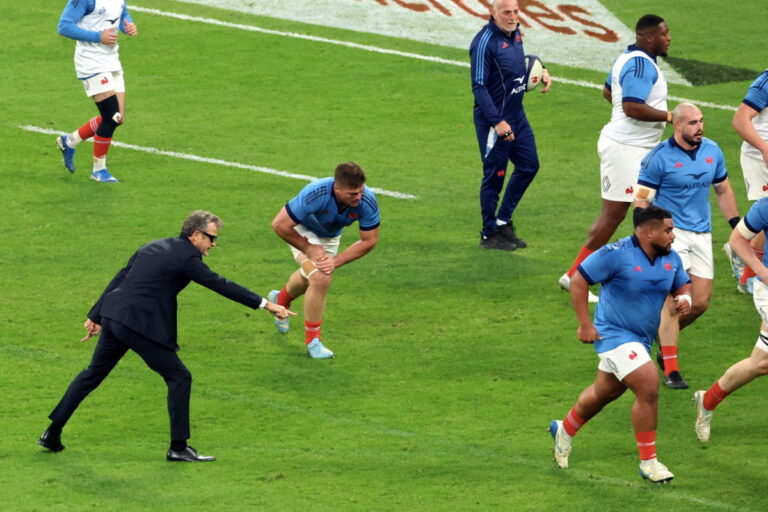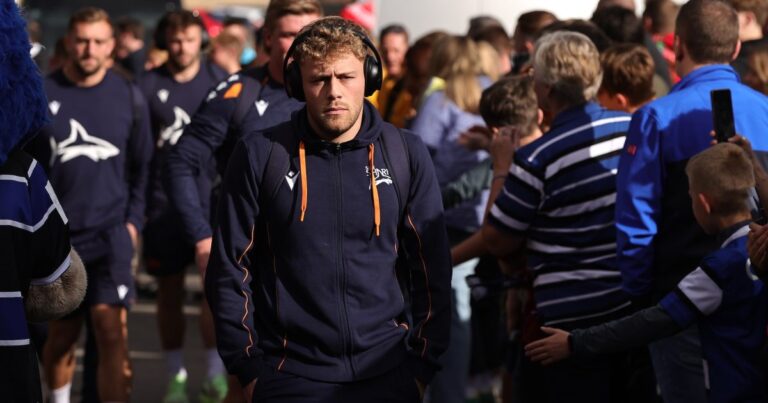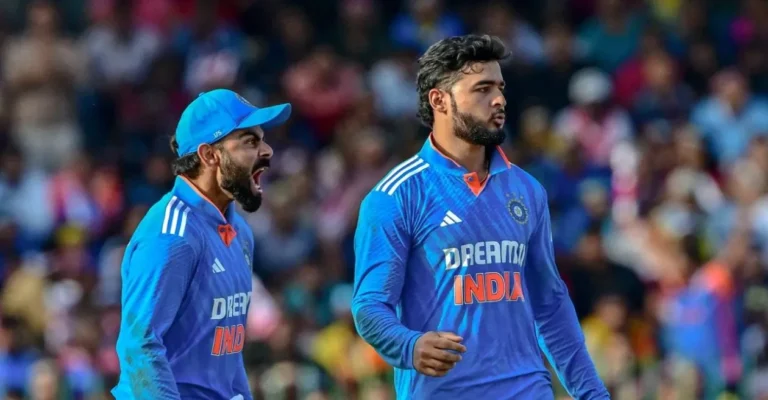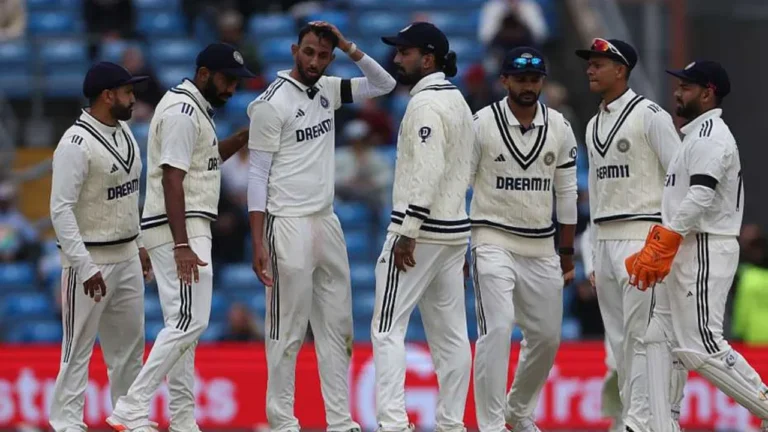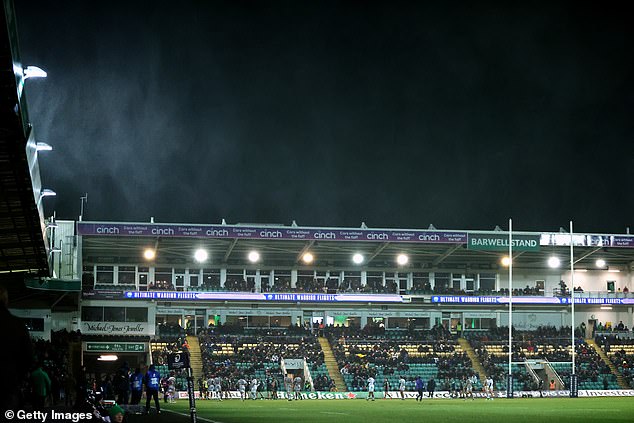
Summer rugby, please. A move to abandon the mid-winter slog should be high on the agenda and it shouldn’t need Darragh or any other storm to justify the idea.
Following a wet, wild weekend, it is high time to consider aligning the hemispheres, for the greater good of the game. Doing so would create a more user-friendly playing and viewing experience.
There has always been a school of thought that rugby must somehow revel in having to overcome appalling conditions. Why? It makes no sense. When the talk turns to how a ball is like a ‘bar of soap’, it is no surprise when that proves unnecessarily difficult, even for the best.
So, play the percentages and do everything to stop making a mockery of top-class players, by cutting December and January out of the global schedule entirely. Avoid the extreme heat of the far south and the freezing, dark, bleak depths of the northern winter. Hey presto, the product will improve.
Players and coaches in these parts would appreciate a chance to enjoy the festive period with their families for a change, instead of being in the midst of a gruelling domestic campaign. Clubs would miss out on bumper Christmas attendances, but that factor would be more than off-set by the potential to fill stands on a weekly basis when it is warm and inviting.
How much better it could be, not having to persuade spectators young and old to brave the worst elements, to watch players fumbling and scrapping in the mud. Concentrate fixtures on those times of year when – more often than not – conditions are conducive to catch-and-pass attacking play.

Rugby should move to abandon the mid-winter slog and play its competitions in the summer

When the talk turns to how a ball is like a ‘bar of soap’, it is no surprise when that proves unnecessarily difficult

It will also improve the viewing experience, with fans often drenched as they watch on
Those who reject the idea argue that rugby would clash with major events in summer such as the Olympics, but that is a once-every-four-years extravaganza, and hardly drags thousands of people out of the country to attend it. Likewise, an Ashes series occurs only every four years in this country, and cricket’s schedule is in a disjointed state anyway. Golf, tennis and athletics are unlikely to cast a shadow over rugby during the warmer, lighter months, as Premier League football does all winter.
Football World Cups and European Championships take place in June and July, and oval-ball officials could make a virtue of those popular campaigns. If England play in a football tournament around then, schedule earlier, co-ordinated kick-offs then set up fan zones with big screens in club grounds. Create a sporting carnival and take a fortune in food, drink and merchandise sales. It is much easier to do so when the sun is out and it stays light until late.
Start with fresh players contesting the Six Nations in the usual slot (if it simply won’t budge), then the primary part of the club season could run from late March until the end of October, with a hiatus for the usual Test window in July. The domestic season could be reaching a thunderous climax at a time when the Premier League pauses for an extended international break, which will be the system from 2026 and would leave the sports viewing market wide open.
If a new, aligned global calendar culminated in either a World Cup or November Tests in Europe, as part of the new Nations Championship, it would be a logical sign-off for all players before having a break at the same time.
Any switch to summer rugby would be about maximising helpful conditions to create the type of spectacle the majority of people want to see; artistry, tries and thrills, not mud and mauls. Apologies to the traditionalists who may be outraged, but that is the reality; it needs to be a glitzy show, not a wild, wet slog, where fine players are reduced to fumbling mediocrity by near-impossible elements.

An aligned global calendar would allow the game to be played in the warm weather worldwide
A soak in the Bath
It is staggering to think that people paid £89 for a soaking at Bath on Friday night. That was the price of some seats in an uncovered stand as the West Country club launched the Champions Cup with a 24-20 defeat by La Rochelle.
Fans were treated to a grand occasion and a close encounter, but many had to fork out a lot to be open to the elements in a flat-pack stand. The sooner the new Rec is built the better, but the wait has gone on an eternity already and it jars that Minimum Standards Criteria are applied to prospective newcomers to the Premiership, but not to one of the established members of the English club hierarchy.
Bath have been able to dodge the auditors for years despite archaic facilities and an often poor pitch, set against the backdrop of a picture-book location. Part of the MSC should be sound-proofed coaching boxes so that the likes of Ronan O’Gara can swear and rant in splendid isolation.
The Irishman apologised for his language after being confronted by irate Bath fans, but heart-on-sleeve passion is difficult to contain, so let it all erupt out of earshot of fans. La Rochelle’s win ignited a fine weekend for the French, including an eye-catching victory for Toulon against the Stormers in South Africa, while Clermont’s 28-0 home rout of Benetton served as a throw-back to lost eras of dominance at Stade Marcel Michelin.

Fans paid £89 for a ticket to watch Bath in an open stand on Friday evening – and they lost

The sooner the new Rec is built the better, but the wait has gone on an eternity already
No turning back?
Three former RFU chairmen – Martyn Thomas, Graeme Cattermole and Brian Baister – have called on the union’s current chairman and chief executive, Tom Ilube and Bill Sweeney, to resign, amid the on-going furore over executive bonuses, at a time of cost-cutting and heavy financial losses.
In a letter sent to various newspapers, the trio argue that the hierarchy in place have done ‘enormous and irreparable damage to the reputation of the RFU’. Championship clubs have backed a vote of no confidence in Ilube and Sweeney and the referees’ union is calling for a Special General Meeting.
Pressure is building, but the internal mechanism for calling executives to account is arguably not fit for purpose. Fresh from blaming media ‘clickbait’ for the whole mess, RFU president Rob Udwin has tried to pre-empt a revolt by calling a meeting of council members on December 18.
Meanwhile, the council members themselves – while pondering drastic action – are believed to have spent considerable time debating whether or not a key meeting should take place at the East India Club in central London.
Instead of focusing on the serious business, the blazer-and-old-school-tie brigade are stuck in a post-colonial time-warp, it seems; some of them anyway. Evidently, no revolution can be considered without decent canapes and brandy…

Bill Sweeney (left) and Tom Ilube (right) are facing calls to resign from their roles from three former RFU chairmen

It is argued that the hierarchy in place have done ‘enormous and irreparable damage to the reputation of the RFU
Fix the glitch
Premier Sports have some technical issues to overcome after their opening weekend of Champions Cup coverage. Having won the rights to the marquee club event, the Irish subscription broadcaster provided a wall-to-wall service, which suffered from occasional examples of match footage cutting to adverts, other games, or even other sports.
During the Racing 92 vs Harlequins fixture on Saturday night, Premier Sports 1 started showing adverts midway through the first half, then reverted to the earlier Stormers v Toulon match.
On Sunday, coverage of the Bordeaux-Leicester game was abruptly interrupted when the same channel started showing what appeared to be Spanish football instead. In each case, it was easy enough to re-load the correct coverage, but credibility will be jeopardised if the avoidable glitches can’t be fixed.
On the flip-side, Ross Harries is an impressive presenter and he co-ordinated slick, informative half-time analysis during the game in Bordeaux with studio pundits Topsy Ojo and Stephen Ferris offering a mixture of strident opinions and technical, tactical insight. Jamie Roberts and John Barclay are others who bring gravitas to the Premier Sports line-up.

Premier Sports had some technical issues in their opening weekend of Champions Cup coverage – but the punditry (pictured, Topsy Ojo) was strong
Fight goes on for Coventry
Coventry’s declaration of intent to push for promotion to the Premiership is fabulous news – but it is farcical that the West Midlands club face a gruelling legal fight for fair treatment. It is entirely fitting that the Championship leaders must commit to developing their home ground for the top flight, and it would be appropriate to apply heavy sanctions if deadlines are not met.
But it is red-tape lunacy to expect all long-term planning permissions to be in place by next month, when the MSC audit takes place. Why insist on launching such an expensive process if there is no eventual requirement for it? If they were to go up, let Coventry reach the 10,001 capacity threshold (required by year four in the Premiership) via steady, sustainable steps.
If they win the Championship, they will have their work cut out in a two-leg play-off against the bottom team in the Premiership, who will be operating on a far bigger budget and hardened by a top-flight campaign which contains a trace of jeopardy.
It has the look of a near-impossible task. But here’s hoping that their public declaration of intent forces the issue. English rugby can’t afford to snuff out any flickering flames of ambition below the denuded top tier, by maintaining de facto ring-fencing.

Coventry’s declaration of intent to push for promotion to the Premiership is fabulous news

Ilona Maher is a transformative signing by Bristol and will have a profound impact as a pied piper for the women’s game

Maher has amassed 4.6million Instagram followers, confirming her emergence as a peerless idol of the sport
The last word
Ilona Maher. Welcome. What a transformative signing by Bristol. The iconic USA Sevens star is bound have a profound impact as a pied piper for the women’s game.
Soon after announcing the audacious recruitment coup, the Bears were advertising for a social media manager and shifting their Premiership Women’s game against Gloucester-Hartpury next month to Ashton Gate, due to a dramatic surge in ticket sales. Glorious.
Maher has shown she can be a powerful asset on the field, but there is no reason to be shy about tapping into her status as a unique asset off it too. Having just finished a stint on Dancing with the Stars in the States, Maher has amassed 4.6million Instagram followers, confirming her emergence as a peerless idol of the sport. For context, England Rugby have 1.4m followers, Premiership Rugby have 410,000 and the women’s league have 33,500.
That old adage about nobody being bigger than the team is redundant. Maher is bigger than Bristol, bigger than the league and bigger than women’s rugby as a whole.
She eclipses the male stars too. Antoine Dupont and Siya Kolisi each have 1m Instagram followers. Frankly, Maher can teach the women’s and men’s game here so much about canny marketing.
Those charged with promoting the sport should be lining up to learn from the box-office arrival in the West Country, so they can modernise and innovate, evolve and expand. Maher is welcome – very welcome.
